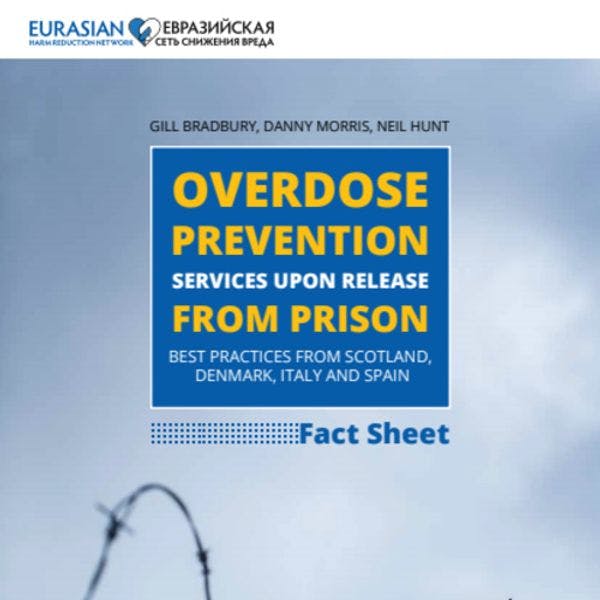Servicios de prevención de sobredosis tras salir de prisión: buenas prácticas de Escocia, Dinamarca, Italia y España
En esta hoja informativa se presentan modelos de buenas prácticas de Escocia, Dinamarca, Italia y España para los programas de prevención y gestión de las sobredosis tras la salida de prisión. Más información, en inglés, está disponible abajo.
Suscríbase a las Alertas mensuales del IDPC para recibir información sobre cuestiones relacionadas con políticas sobre drogas.
It is widely acknowledged among European Union policymakers that there is a demand to improve the range and quality of health and social care services for prisoner populations and, most notably, for marginalized and at-risk groups vulnerable to drug-related harms. This includes reducing the high rates of overdose among those who use opioids.
People who inject opioid drugs are at particular risk of overdose following release from prison. However, overdose-related deaths are preventable, and continued efforts are needed to improve continuity of care for prisoners, while systematically implementing recommended approaches that are shown to reduce drug-related deaths.
Progress has been made in some European countries, although significant gaps between prison and community-based services still exist, in terms of both coverage and quality of health services available to prisoners. Over the last decade, prison healthcare has increasingly been recognized as part of public healthcare, and changes have been made as to who takes responsibility for this, alongside specific drug and health strategies or regulations for the prison setting. While European Prison Rules specify that prisoners should be offered a medical examination as close as possible to the time of release, this type of routine ‘exit’ health examination does not seem to be common in Europe.
There is a strong argument to suggest that any successful approach to improving prison health in the future must recognize the importance of including harm reduction and drug treatment services which are integrated with mental healthcare and other relevant services. This requires a significant scale-up of services within prisons, a functioning throughcare mechanism and substantial efforts to improve this liaison and continuity of treatment.
A number of interventions targeting opioid users have been recommended to reduce the risk of a fatal overdose in the period shortly after release from prison. They include prerelease counselling on overdose risks and prevention, along with training in first aid and overdose management – again optimizing referral to maintain solid links between prisons and community-based services.
This ‘Fact Sheet’ reports on good practice models in four European Union (EU) countries – Scotland, Denmark, Italy and Spain (more specifically, the Catalonia region) – on overdose prevention and management programmes upon release from prison. The main findings are concluded with recommendations made regarding their relevance to the five target countries of the project: Estonia, Hungary, Lithuania, Poland and Romania.
Information gathered includes programme descriptions; evidence of effectiveness; functioning; and involvement of people who use drugs. The methodology for collection and documentation of good practices is based on reports and guidance from leading organizations in the field such as the World Health Organization, European Monitoring Centre for Drugs and Drug Addiction (EMCDDA) etc. This fact sheet is of particular relevance to prison staff, health care professionals and people who use drugs.
Keep up-to-date with drug policy developments by subscribing to the IDPC Monthly Alert.
Temas
Regiones
Perfiles relacionados
- Eurasian Harm Reduction Network (EHRN)
